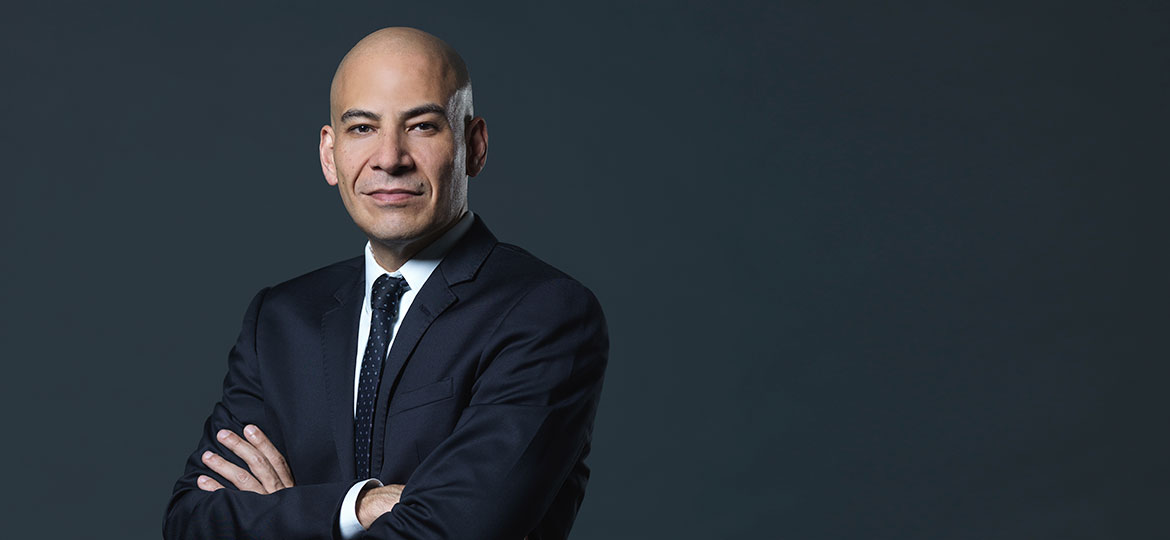
#2 Fady Jameel, Deputy President and Vice Chairman OF Abdul Latif Jameel
Shuqaiq 3: an oasis of opportunity
Fady Jameel, Abdul Latif Jameel Deputy President and Vice Chairman, discusses Abdul Latif Jameel’s involvement in the Shuqaiq 3 independent water desalination plant in Saudi Arabia, one of the largest desalination projects in the world today.
The Shuqaiq 3 desalination plant in Jizan province in south-west Saudi Arabia will be one of the largest reverse osmosis (RO) desalination plants in the world when complete in the fourth quarter of 2021.
Awarded to a consortium of Almar Water Solutions (through Abdul Latif Jameel Enterprises ), Acciona, Marubeni Corporation and Rawafid Alhadarah Holding Co, its 450,000 cubic meter daily production capacity from this US$ 600m infrastructure investment will guarantee the supply of drinking water to over 1.8 million citizens, while also contributing to economic and industrial development both locally and nationally.
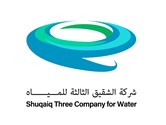
Recognized throughout the water industry as one of the most complex and innovative plants of its kind, in September 2019 it was named the “Utilities Project of the Year” at the Middle East Energy Awards 2019, held in Dubai, UAE, cementing its status as one of the flagship new infrastructure projects in the region.
Fady Jameel, Deputy President and Vice Chairman, Abdul Latif Jameel, explains the background to the project and its critical significance for both Saudi Arabia and the water industry.
Q. What is Abdul Latif Jameel’s experience in the global water industry?
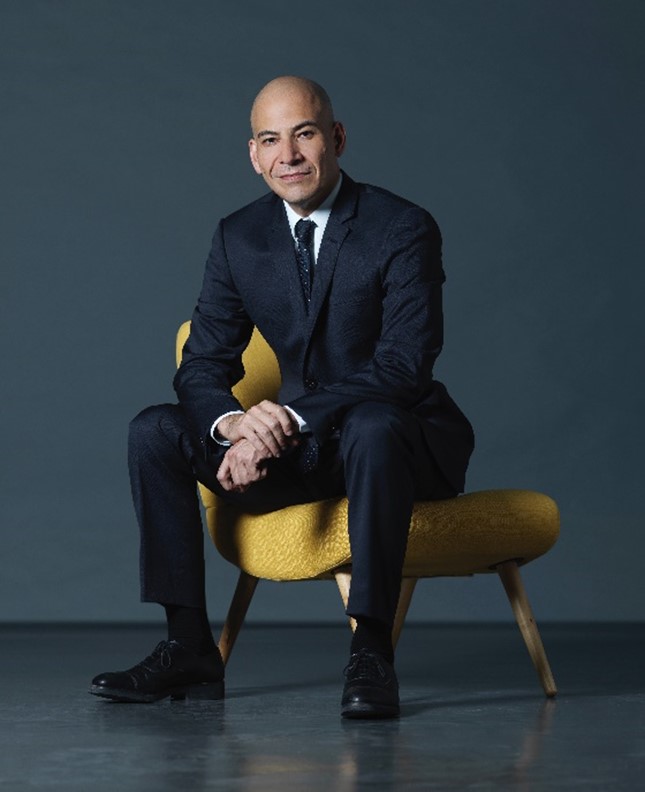 Our first foray into the water sector was over 20 years ago, in Jeddah. We identified a small reverse osmosis desalination plant that had been mothballed and disassembled in the United States. We bought it and reassembled it to deliver clean water for the Islamic Port in Jeddah. Since then, we’ve also invested in other plants and provided water for several of Saudi Arabia’s industrials cities.
Our first foray into the water sector was over 20 years ago, in Jeddah. We identified a small reverse osmosis desalination plant that had been mothballed and disassembled in the United States. We bought it and reassembled it to deliver clean water for the Islamic Port in Jeddah. Since then, we’ve also invested in other plants and provided water for several of Saudi Arabia’s industrials cities.
We’ve learned a lot since then.
The availability of clean water for the community, for industry, and for the sustainability of any country is vitally important.
But it needs to be done correctly, in a way that not only delivers for shareholders and partners, but which also takes responsibility for the longer-term environmental impact.
Historically, many water plants did not take this approach, not least in terms of their poor energy efficiency. At Abdul Latif Jameel, this approach is at the heart of every investment we make. This goes for mobility, this goes for renewables, and this goes, of course, for our largest water project to date – Shuqaiq 3.
Q. What kind of steps have you taken at Shuqaiq 3 to try and improve sustainability?
It starts with optimizing the efficiency of the plant, working closely with our partners, Marubeni. Having the most efficient plant, using the latest technology and processes, and incorporating best practices is key not only to addressing sustainability issues in our country, but also in winning projects. It doesn’t mean sacrificing profit. You can still achieve a like-for-like return when you do things more efficiently. Another issue is the brine that is produced during desalination. What is the best way to deal with that? Our approach is to ensure the brine is adequately diluted and released back into the sea across a wide area, so it is quickly dispersed in the natural way. Insisting on, and learning from, these sustainable processes is very important for us. Our ambition is not only the successful completion of the Shuqaiq plant. We plan to do other things in Saudi Arabia, in Latin America, South-East Asia, as well as North and East Africa. Shuqaiq 3 is the jewel in the crown, so we have to get it right.
Q. Is it important to work with other partners on a project like this?
Yes, it’s invaluable to work with other partners that share the same goals and solutions. It’s also important to benefit from the new technologies they bring and what we can learn from those. We’re already investing in existing or new technologies that will help define the development of water systems in the coming years, technologies in software as well as hardware, for example with the J-WAFS lab at MIT, as well as with other partners who have specific software or hardware that could help alleviate some of the strain on the environment.
Given the global scope of the Abdul Latif Jameel business, with its focus on investing in the infrastructure of life, I also think it’s important for us to set an example in addressing these issues. We want to encourage others to do the same thing, not only within the water industry, but in the sustainability of their own businesses.
We don’t want to be playing catch-up.
Regulations are getting more stringent; governments are paying more attention to the climate change agenda, and it is up to us to step up our action, too.
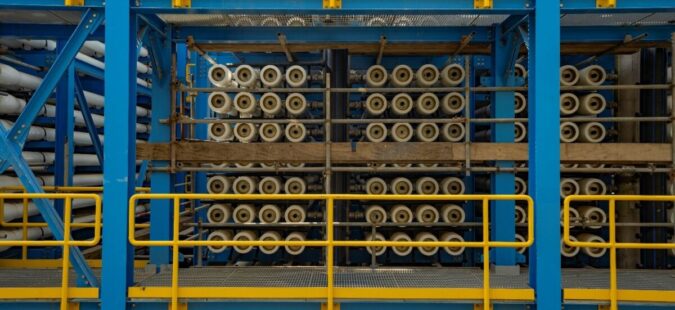
Some of the 7,000 (or equivalent to 54 kilometers) of Reverse Osmosis pressure vessels at the Shuqaiq 3 IWP
Q. Does the fact Shuqaiq 3 is in your home market of Saudi Arabia make it even more significant for you?
Absolutely! It’s one of the largest projects in Saudi Arabia, certainly the largest private project in Saudi Arabia. It will play a massive role in transforming Jizan province, whether it’s industry or whether it’s private homes, or generally in terms of growth. So, we’re very proud of it and it’s an indicator of the type of projects we aim to do more of in future.
Q. Where does Shuqaiq 3 fit within the wider picture of Abdul Latif Jameel’s focus on water?
Many of the projects in our existing portfolio, whether it’s Bahrain, or Latin America, or Egypt, are so-called brownfield projects. They tend to be older plants that we revitalize and that we improve, bringing the old economy into the new. Shuqaiq 3 is different in that it is a brand new plant using leading edge technology. It gives us a chance to innovate with new technologies at scale, that we can hopefully utilize in subsequent projects around the world.
Q. Do you think awareness of water challenges around the world has grown over the past few years?
Yes, absolutely. It’s extremely important and it is widely recognized as a cross-border, geopolitical risk. If you want to avoid unnecessary regional conflict, water security is vital. Agriculture, food production, sanitation, health – it all comes back to water. It is not only an issue in ‘obvious’ places, where the climate is hot and dry, like the Middle East. Water availability and quality is an issue across the globe – in Europe, Latin America, Africa, everywhere. Many so-called ‘first-world’ countries have issues with water. Even in countries that do have plentiful water available, it is not always in the places where it is most needed, and it is very expensive to transport water from one place to the other.
At an individual level, people often don’t even think about their water use and where it comes from. But that is changing. Thankfully, people are beginning to understand the need to conserve water within the household, within industry. They see that, as the population grows and more people live in cities, the pressure on water supplies is increasing all the time. And as the pressures intensify, the costs will go up. There is a risk of water being commoditized, and of people becoming dependent on the markets for access to water, rather than it being a basic human right.
We can’t just rely on the government to provide a solution. We need to be part of the solution and work together in every possible way to ensure our society does not squander this essential resource.
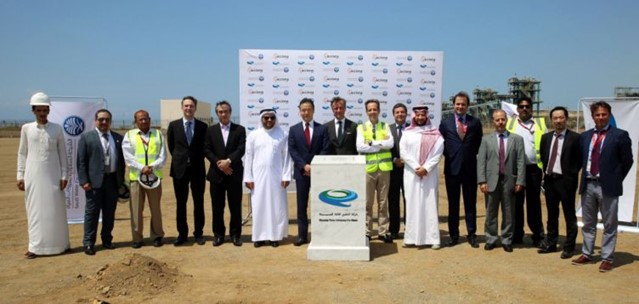
The ground breaking ceremony at Shuqaiq 3 IWP, October 8, 2019.
Q. What difference, if any, has the pandemic made on global water systems?
The pandemic has touched everything. I believe the pandemic itself is a sign of our mismanagement of the natural environment, as I discussed in an Abdul Latif Jameel Spotlight article. We are in the age of pandemics. This is not the first nor the last. It has affected every facet of our society. The only good thing to come out of it is that it has forced governments – and our society as a whole – to recognize the urgent need to rebalance our relationship with the planet and to build a more sustainable way of maintaining our way of life.
If we don’t, this . . . pandemics may just be the beginning.
Q. Traditionally, one of the big drawbacks of water desalination plants is the amount of energy needed to power them. Do you think it will be possible to build a water plant powered by renewable energy?
The short answer is no, not at the moment. It is incredibly energy intensive. You can’t provide adequate power for a large water facility with solar energy, for example, or with wind or hydro. It’s just not economically viable using current renewable energy technologies. Of course, if new energy technologies are developed, such as fusion energy, that may change. There are companies exploring fusion technology in the US, EU, and China, so it may happen in the next 10-15 years. I sincerely hope it does. But for now, it is still a dream.
Q. Desalination is one method for increasing water supply and water availability. The other is water reuse and water treatment. Is this also an area that Abdul Latif Jameel is involved in?
Absolutely. Water reuse is another crucial technology in strengthening global water systems. Currently, around 80% of wastewater is discharged without adequate treatment. By improving the treatment of wastewater, removing the pollutants and contaminants, it can be recycled back into our water systems and re-used, whether in industry, agriculture or as drinking water. There is a huge need to improve the current rate of water re-use in certain key markets, and we are actively looking at a number of investment opportunities in this area.
Q. Abdul Latif Jameel’s involvement in the water sector has progressed hugely over the past few years, particularly with the acquisition of Almar Water Solutions. What are the plans and objectives for the next few years?
We plan to increase our activity in the water sector significantly. We’ve already established a platform with partners in Egypt to address the vast Egyptian market. We’re establishing a platform in Chile for the Latin American market, and in other regions, such as Australia, Saudi Arabia and Europe, where are looking to build relationships with suitable partners. I stress partners, because no one can do this alone. Your need technical expertise, you need developers, you need bankers… everything needs to work together. The more we work with trusted partners, the more we can address the issues and help to drive forward progress in the water industry.

